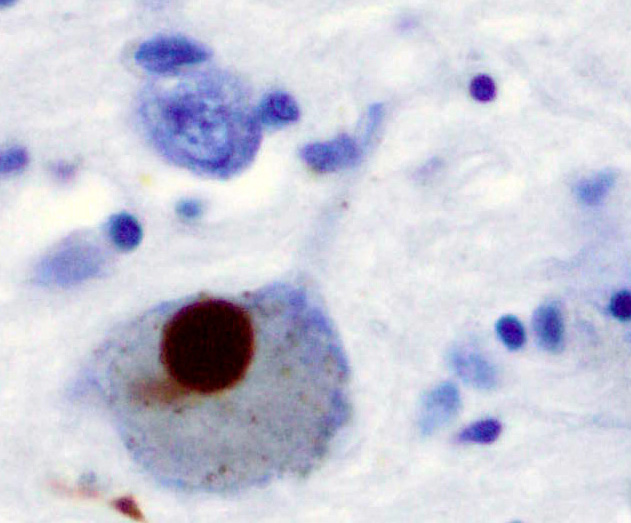Parkinson’s Disease develops if a certain anti-viral receptor and its protein in the brain, called the interferon-beta pathway, is not functioning correctly. That causes the pathway to be blocked, and as a result the brain cells gradually starts to die.
Scientists and private companies are developing drugs that target another protein, but their efforts may prove inadequate for most patients, a new study at the University of Copenhagen suggests.
“Our research suggests that targeting the frontrunner for Parkinson’s Disease drug development, the alpha-synuclein protein, may not be sufficient to cure the patients or alleviate their symptoms. Major considerations should instead be made towards resolving brain inflammation caused by dysfunctional interferon-beta receptor signaling,” explains Professor Shohreh Issazadeh-Navikas, principle investigator and corresponding author of the study.
The alpha-synuclein protein have long been thought to be the toxic protein to get rid of in Parkinson’s Disease. But the study conducted in mice now suggests it may only help the cases of the familiar form of Parkinson’s Disease, encompassing few percent of all Parkinson’s Disease cases, whereas the so-called sporadic form covers the rest of the cases.
“In the familiar form of Parkinson’s Disease, the alpha-synuclein protein is produced two or three times more than needed, and the neurons cannot get rid of it, which builds up toxicity and thus causing the disease,” says Professor Issazadeh-Navikas.
“In our study, we investigated whether the absence of the alpha-synuclein protein in the mice would impact disease development for the other 95 percent of patients. We found that when we took away this protein, it made no impact on the clinical and pathological manifestation of disease mimicking sporadic form of Parkinson’s Disease and its pathology,” she explains.
Much of the preclinical research for Parkinson’s Disease is conducted in animal models that either add the alpha-synuclein protein or express human mutations of the protein in order to replicate the pathology. According to the researchers, that have led to a general assumption that the alpha-synuclein causes the disease, which is likely not the case for most patients.
Instead, they now hope to bring to attention the important role of the interferon-beta pathway signaling in sporadic Parkinson’s Disease.
“Our study suggests that we should also consider brain inflammation and particularly activate fine-tuning of interferon-beta signaling as a potential target for drug development, since it seems as a lack of it or a dysfunction of it is enough to cause the disease in the first place. At the very least, we want to bring more attention to this, and suggest it as a future therapeutic target,” says first author and Ph.D.-student Erika Bianca Torres Villanueva from Issazadeh-Navikas Group.
The research was published in Annals of Neurology.
Mitochondria malfunction shown to be the major cause of Parkinson’s
More information:
Erika B. Villanueva et al, Neuronal TNFα , Not α‐Syn, Underlies PDD ‐Like Disease Progression in IFNβ‐KO Mice, Annals of Neurology (2021). DOI: 10.1002/ana.26209
Provided by
University of Copenhagen
Citation:
Frontrunner target for Parkinson’s Disease may only be relevant for small fraction of patients (2021, October 8)
retrieved 10 October 2021
from https://medicalxpress.com/news/2021-10-frontrunner-parkinson-disease-relevant-small.html
This document is subject to copyright. Apart from any fair dealing for the purpose of private study or research, no
part may be reproduced without the written permission. The content is provided for information purposes only.



